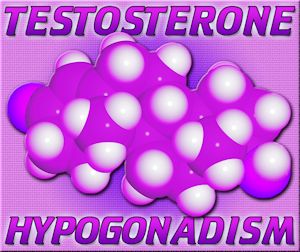Introduction
Erectile dysfunction (ED) is a prevalent issue affecting millions of American men, with soft erections being one of the most common complaints. This condition can significantly impact quality of life, leading to psychological distress and relationship strain. Recent studies have begun to explore the hormonal underpinnings of this phenomenon, particularly focusing on the role of testosterone. This article delves into the relationship between testosterone levels and the occurrence of soft erections among American males, offering a detailed analysis of the latest research findings.
Understanding Testosterone and Its Functions
Testosterone is a crucial hormone primarily produced in the testes of men. It plays a vital role in the development of male reproductive tissues and secondary sexual characteristics, such as increased muscle and bone mass, and the growth of body hair. Beyond these physical attributes, testosterone is also essential for maintaining libido and supporting erectile function.
The Link Between Testosterone and Erections
Erections are a complex interplay of hormonal, neurological, and vascular factors. Testosterone influences this process by enhancing nitric oxide production, which is essential for the relaxation of smooth muscle in the penis, thereby facilitating blood flow and achieving an erection. Low levels of testosterone can impair this mechanism, leading to difficulties in achieving and maintaining a firm erection.
Research Findings on Testosterone and Soft Erections
Recent studies have provided compelling evidence linking low testosterone levels to the prevalence of soft erections. A comprehensive analysis conducted on a cohort of American men aged 40-70 years found that those with testosterone levels below the normal range were significantly more likely to report issues with soft erections. The study utilized advanced hormonal assays to measure serum testosterone levels and correlated these findings with self-reported erectile function.
Clinical Implications and Treatment Approaches
The identification of low testosterone as a contributing factor to soft erections opens up new avenues for treatment. Hormone replacement therapy (HRT) has emerged as a potential solution for men with clinically low testosterone levels. Clinical trials have demonstrated that HRT can improve erectile function in men with hypogonadism, suggesting that addressing hormonal imbalances could be an effective strategy for managing soft erections.
However, it is crucial to approach HRT with caution. The therapy should be administered under the supervision of a healthcare professional, as it carries potential risks, including an increased likelihood of cardiovascular events and prostate issues. Additionally, lifestyle modifications, such as regular exercise, a balanced diet, and stress management, can also help improve testosterone levels and overall sexual health.
The Role of Age and Lifestyle Factors
Age is a significant factor in the decline of testosterone levels, with a natural decrease occurring as men grow older. However, lifestyle factors such as obesity, poor diet, lack of exercise, and chronic stress can exacerbate this decline, further contributing to the risk of soft erections. Addressing these modifiable risk factors can play a crucial role in maintaining healthy testosterone levels and improving erectile function.
Conclusion
The relationship between testosterone levels and the occurrence of soft erections among American males is a critical area of research with significant implications for clinical practice. Understanding the hormonal basis of erectile dysfunction can lead to more targeted and effective treatments, improving the quality of life for affected individuals. As research continues to evolve, it is essential for men to engage in open discussions with their healthcare providers about their sexual health and explore all available options for managing this common yet distressing condition.
Contact Us Today For A Free Consultation

- Demystifying the Enigma of Soft Erections: A Comprehensive Guide [Last Updated On: February 25th, 2025] [Originally Added On: February 25th, 2025]
- Exploring the Mind-Body Connection: Harnessing Meditation and Mindfulness for Enhanced Erections [Last Updated On: February 25th, 2025] [Originally Added On: February 25th, 2025]
- Understanding Male Potency: Deciphering the Science behind Erectile Dysfunction [Last Updated On: February 26th, 2025] [Originally Added On: February 26th, 2025]
- Masculinity Reenvisioned: Soft Erections as an Emblem of Strength [Last Updated On: February 27th, 2025] [Originally Added On: February 27th, 2025]
- Revitalizing Virility: Lifestyle Rewiring for Enhanced Erectile Potential [Last Updated On: February 28th, 2025] [Originally Added On: February 28th, 2025]
- Whispering Battles: An Introspection into the Private Struggles with Erectile Dysfunction [Last Updated On: February 28th, 2025] [Originally Added On: February 28th, 2025]
- Unraveling the Stress Matrix: Decoding the Impact of Psychological Stress on Erectile Function [Last Updated On: March 1st, 2025] [Originally Added On: March 1st, 2025]
- Unveiling the Hidden Struggles: A Comprehensive Overview of Erectile Dysfunction [Last Updated On: March 2nd, 2025] [Originally Added On: March 2nd, 2025]
- Soft Erections in Aging Men: Causes, Diagnosis, and Treatment Options [Last Updated On: March 3rd, 2025] [Originally Added On: March 3rd, 2025]
- Enhancing Erectile Function Through Exercise: Understanding Its Physiological and Psychological Benefits [Last Updated On: March 3rd, 2025] [Originally Added On: March 3rd, 2025]
- Exploring Diet's Impact on Erectile Function and Health [Last Updated On: March 4th, 2025] [Originally Added On: March 4th, 2025]
- Exploring the Crucial Role of Sleep in Enhancing Male Erectile Function and Health [Last Updated On: March 5th, 2025] [Originally Added On: March 5th, 2025]
- Understanding and Managing Erectile Dysfunction: Causes, Treatments, and Lifestyle Changes [Last Updated On: March 6th, 2025] [Originally Added On: March 6th, 2025]
- Optimizing Hormonal Balance for Erectile Health: A Comprehensive Guide for Men's Well-being [Last Updated On: March 7th, 2025] [Originally Added On: March 7th, 2025]
- The Crucial Link Between Vascular Health and Erectile Function: A Comprehensive Exploration [Last Updated On: March 8th, 2025] [Originally Added On: March 8th, 2025]
- The Holistic Connection: Erectile Dysfunction as a Reflection of Overall Men's Health [Last Updated On: March 9th, 2025] [Originally Added On: March 9th, 2025]
- From Flab to Firm: How Weight Loss Can Enhance Male Sexual Health and Combat Soft Erections [Last Updated On: March 9th, 2025] [Originally Added On: March 9th, 2025]
- Debunking Myths: Understanding Soft Erections and Effective ED Treatments for American Men [Last Updated On: March 12th, 2025] [Originally Added On: March 12th, 2025]
- Understanding the Impact of Medications on Male Sexual Health: Navigating Drug-Induced Soft Erections [Last Updated On: March 13th, 2025] [Originally Added On: March 13th, 2025]
- Stress and Soft Erections: Understanding Impacts and Effective Management Strategies [Last Updated On: March 15th, 2025] [Originally Added On: March 15th, 2025]
- Vitamins and Minerals: Enhancing Male Sexual Health and Erection Quality [Last Updated On: March 16th, 2025] [Originally Added On: March 16th, 2025]
- Counseling's Role in Overcoming Soft Erections: A Holistic Approach [Last Updated On: March 18th, 2025] [Originally Added On: March 18th, 2025]
- Smoking's Impact on American Males' Erectile Health and Benefits of Quitting [Last Updated On: March 18th, 2025] [Originally Added On: March 18th, 2025]
- Herbal Remedies for Enhancing Erectile Function in American Males [Last Updated On: March 19th, 2025] [Originally Added On: March 19th, 2025]
- Understanding and Managing Soft Erections: Causes, Treatments, and Prevention Strategies [Last Updated On: March 19th, 2025] [Originally Added On: March 19th, 2025]
- Soft Erections in Young Men: Causes, Solutions, and Importance of Professional Help [Last Updated On: March 19th, 2025] [Originally Added On: March 19th, 2025]
- Addressing Soft Erections: Communication and Collaborative Strategies for Couples [Last Updated On: March 20th, 2025] [Originally Added On: March 20th, 2025]
- Alcohol's Impact on Erection Quality: Strategies for Optimal Sexual Health [Last Updated On: March 20th, 2025] [Originally Added On: March 20th, 2025]
- Work Stress and Erectile Dysfunction: Impacts and Management Strategies for American Men [Last Updated On: March 20th, 2025] [Originally Added On: March 20th, 2025]
- Diagnosing Soft Erections: Comprehensive Approaches for American Males' Urological Health [Last Updated On: March 21st, 2025] [Originally Added On: March 21st, 2025]
- Pelvic Floor Exercises: Enhancing Erection Quality and Overall Health in American Males [Last Updated On: March 21st, 2025] [Originally Added On: March 21st, 2025]
- Enhancing Male Sexual Health: Diet, Exercise, and Lifestyle Strategies for Strong Erections [Last Updated On: March 22nd, 2025] [Originally Added On: March 22nd, 2025]
- Economic Impacts of Erectile Dysfunction on American Men: Costs, Productivity, and Relationships [Last Updated On: March 23rd, 2025] [Originally Added On: March 23rd, 2025]
- Understanding Soft Erections: Causes, Impacts, and Strategies for Sexual Confidence [Last Updated On: March 23rd, 2025] [Originally Added On: March 23rd, 2025]
- Chronic Inflammation's Impact on Sexual Health: Mechanisms and Management Strategies [Last Updated On: March 23rd, 2025] [Originally Added On: March 23rd, 2025]
- Overcoming Soft Erections: From Frustration to Fulfillment with Medical and Lifestyle Solutions [Last Updated On: March 23rd, 2025] [Originally Added On: March 23rd, 2025]
- Innovative Devices and Holistic Approaches for Managing Soft Erections and ED [Last Updated On: March 23rd, 2025] [Originally Added On: March 23rd, 2025]
- Soft Erections: Understanding, Impact, and Building Intimacy in Relationships [Last Updated On: March 24th, 2025] [Originally Added On: March 24th, 2025]
- Cardiovascular Health's Impact on Erectile Function and Soft Erections in Men [Last Updated On: March 24th, 2025] [Originally Added On: March 24th, 2025]
- Alternative Medicine and Acupuncture for Enhancing Erectile Health in American Males [Last Updated On: March 24th, 2025] [Originally Added On: March 24th, 2025]
- Managing Soft Erections: Lifestyle and Psychological Strategies for American Men [Last Updated On: March 24th, 2025] [Originally Added On: March 24th, 2025]
- Managing Soft Erections: Understanding Causes, Preparing for Doctor Visits, and Exploring Treatments [Last Updated On: March 24th, 2025] [Originally Added On: March 24th, 2025]
- Mindfulness Techniques for Managing Soft Erections in American Men [Last Updated On: March 24th, 2025] [Originally Added On: March 24th, 2025]
- Soft Erections and Self-Esteem: Psychological Strategies for American Men [Last Updated On: March 24th, 2025] [Originally Added On: March 24th, 2025]
- Superfoods Boost Vascular Health, Enhance Erection Quality: Dark Chocolate, Walnuts, More [Last Updated On: March 24th, 2025] [Originally Added On: March 24th, 2025]
- Prostate Health and Soft Erections: Understanding and Managing the Connection [Last Updated On: March 24th, 2025] [Originally Added On: March 24th, 2025]
- Digital Health Tools for Managing Soft Erections in American Men [Last Updated On: March 24th, 2025] [Originally Added On: March 24th, 2025]
- Exploring Alternative Therapies for Erectile Dysfunction in American Men [Last Updated On: March 25th, 2025] [Originally Added On: March 25th, 2025]
- Physical Therapy: A Promising Solution for Soft Erections and Erectile Dysfunction [Last Updated On: March 25th, 2025] [Originally Added On: March 25th, 2025]
- Environmental Toxins and Their Impact on Male Sexual Health: Understanding Soft Erections [Last Updated On: March 25th, 2025] [Originally Added On: March 25th, 2025]
- Obesity and Soft Erections: Enhancing Sexual Health Through Weight Management [Last Updated On: March 25th, 2025] [Originally Added On: March 25th, 2025]
- Understanding Soft Erections: Causes, Impacts, and Management Strategies for American Males [Last Updated On: March 25th, 2025] [Originally Added On: March 25th, 2025]
- PDE5 Inhibitors: A Targeted Solution for Soft Erections and ED Management [Last Updated On: March 25th, 2025] [Originally Added On: March 25th, 2025]
- Innovative Technologies Transforming Erectile Dysfunction Treatment in American Males [Last Updated On: March 25th, 2025] [Originally Added On: March 25th, 2025]
- Hormonal Balance: Key to Enhancing Erectile Strength in American Men [Last Updated On: March 25th, 2025] [Originally Added On: March 25th, 2025]
- Soft Erections in American Males: Impact of Anxiety, Depression, and Holistic Treatment Approaches [Last Updated On: March 25th, 2025] [Originally Added On: March 25th, 2025]
- Nitric Oxide's Role in Enhancing Erections: Mechanisms and Strategies [Last Updated On: March 25th, 2025] [Originally Added On: March 25th, 2025]
- Understanding Soft Erections: Causes, Mechanisms, and Treatment Options for American Males [Last Updated On: March 26th, 2025] [Originally Added On: March 26th, 2025]
- Understanding Soft Erections: Causes, Treatments, and Breaking Stereotypes in American Men [Last Updated On: March 26th, 2025] [Originally Added On: March 26th, 2025]
- Soft Erections and Metabolic Syndrome: Causes, Implications, and Management for American Males [Last Updated On: March 26th, 2025] [Originally Added On: March 26th, 2025]
- Sedentary Lifestyles and Erection Health: The Importance of Physical Activity [Last Updated On: March 26th, 2025] [Originally Added On: March 26th, 2025]
- Genetic and Epigenetic Influences on Erectile Dysfunction: A Comprehensive Overview [Last Updated On: March 26th, 2025] [Originally Added On: March 26th, 2025]
- Soft Erections vs. Erectile Dysfunction: Causes, Impacts, and Treatments for American Men [Last Updated On: March 26th, 2025] [Originally Added On: March 26th, 2025]
- Medications Causing Soft Erections: Causes, Identification, and Management Strategies [Last Updated On: March 26th, 2025] [Originally Added On: March 26th, 2025]
- Biofeedback: A Non-Invasive Solution for Enhancing Erectile Control in American Males [Last Updated On: March 27th, 2025] [Originally Added On: March 27th, 2025]
- Enhancing Sexual Stamina: Techniques for Managing Soft Erections in American Men [Last Updated On: March 27th, 2025] [Originally Added On: March 27th, 2025]
- Sleep Disorders and Soft Erections: Impact on American Males' Sexual Health [Last Updated On: March 28th, 2025] [Originally Added On: March 28th, 2025]
- Cardiovascular Exercise Boosts Erection Quality in American Men [Last Updated On: March 29th, 2025] [Originally Added On: March 29th, 2025]
- Stress Management Techniques to Improve Erectile Function in American Men [Last Updated On: March 30th, 2025] [Originally Added On: March 30th, 2025]
- Redefining Masculinity: Embracing Soft Erections and Enhancing Sexual Confidence [Last Updated On: March 30th, 2025] [Originally Added On: March 30th, 2025]
- Understanding and Treating Soft Erections: Causes, Therapies, and Surgical Options [Last Updated On: March 31st, 2025] [Originally Added On: March 31st, 2025]
- Soft Erections: Understanding, Impact, and Solutions for American Men [Last Updated On: April 2nd, 2025] [Originally Added On: April 2nd, 2025]
- Nerve Health's Crucial Role in Enhancing Erectile Function for American Men [Last Updated On: April 2nd, 2025] [Originally Added On: April 2nd, 2025]
- Innovative Research and Technologies Transforming Soft Erection Treatment [Last Updated On: April 3rd, 2025] [Originally Added On: April 3rd, 2025]
- Lifestyle Overhauls Boost Erection Quality: Diet, Exercise, and Health Management [Last Updated On: April 5th, 2025] [Originally Added On: April 5th, 2025]
- Cortisol's Impact on Erectile Dysfunction: Managing Stress for Better Sexual Health [Last Updated On: April 6th, 2025] [Originally Added On: April 6th, 2025]
- Breaking Barriers: Discussing Soft Erections and ED Among American Men [Last Updated On: April 8th, 2025] [Originally Added On: April 8th, 2025]
- Natural Aphrodisiacs: Exploring Their Impact on Male Sexual Health and ED [Last Updated On: April 8th, 2025] [Originally Added On: April 8th, 2025]
- Holistic Strategies for Enhancing Male Sexual Performance and Erection Quality [Last Updated On: April 9th, 2025] [Originally Added On: April 9th, 2025]
- Soft Erections: Physical, Psychological, and Social Impacts on American Men [Last Updated On: April 10th, 2025] [Originally Added On: April 10th, 2025]
Word Count: 568




















